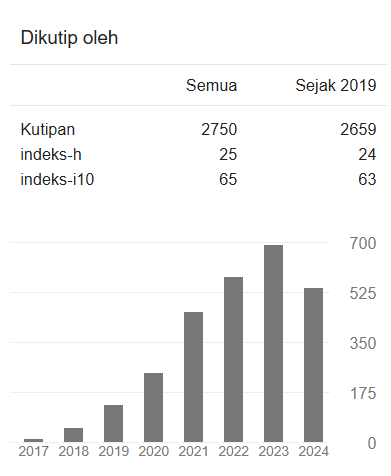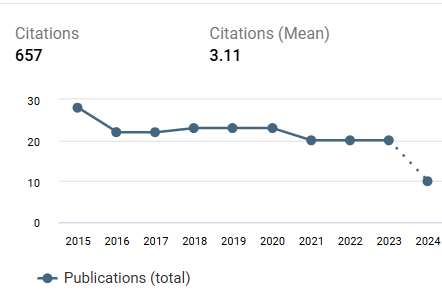Pengembangan Modul Pembelajaran Berbasis Masalah Untuk Membantu Meningkatkan Berfikir Kreatif Mahasiswa
DOI:
https://doi.org/10.22219/jinop.v2i2.2629Abstract
ABSTRAK
Masalah penelitian adalah rendahnya kemampuan berfikir kreatif mahasiswa dalam menyelesaikan masalah. Tujuan penelitian menghasilkan modul pembelajaran berbasis masalah yang dapat membantu meningkatkan berfikir kreatif mahasiswa.Pengembangan modul menggunakan model 4D Thiagarajan dan Semmel, tetapi yang digunakan hanya 3D yaitu pendefinisian, perancangan, dan pengembangan.Untuk penyebaran tidak dilaksanakan karena tidak bertujuan melakukan generalisasi. Sasaran uji coba produk mahasiswa prodi PPKn STKIP PGRI Blitar angkatan 2014/2015.Istrumen merekam data menggunakan lembar validasi, lembar observasi, tes penguasaan bahan ajar, dan angket respon mahasiswa.Analisis data menggunakan analisis deskriptif kualitatif dan analisis statistik deskriptif. Hasil penelitian (1) berdasarkan kriteria yang telah ditetapkan semua instrumen memenuhi kevalidan (2) kepraktisan modul dengan aspek keterlaksanaan modul mencapai skor 78.17% masuk dalam kategori baik (3) aktivitas dosen dalam pembelajaran mencapai skor 83.06 masuk dalam kategori aktif (4) Dilihat dari aspek keefektifan modul dengan indikator ketuntasan belajar mencapai skor 90.27% dikatakan tuntas, aktivitas mahasiswa mencapai skor 76.61% masuk dalam kategori aktif. Respon mahasiswa atas penggunaan modul mencapai skor 1.66% memberi respon positif.Dengan mengacu pada indikator tersebut dapat disimpulkan bahwa modul PBL ini telah memenuhi syarat valid, praktis dan efektif.
Kata Kunci : Modul , Problem Based Learning, Berfikir Kreatif
Research problem is lack of creative thinking abilities of students to solve problems. The purpose of resulting of this research is a problem-based learning models which increase the ability of creative thinking of students. This module develop by using 4D model Thiagarajan and Semme, but only used the 3D model they are defining, designing, and developing. Dessemination is not executed because it does not aim to generalize. Target of resulting product are students of major PPKn in STKIP PGRI BLITAR 2014/201. Instruments to record data is using a validation sheets, observation sheets, test mastery of material, and students responses questioner. Data analysis use descriptive analysis of qualitative and descriptive statistic statistical analysis. Research result depends on (1) a criteria which established all the instruments are valid. (2) Practically modules which implementation aspect modules are 78.18% which get good score (3) Lecturer activity in learning are 83.06% which get active category (4) From module affectiveness aspect, study accomplishment 90.27%, it’s a complete score, students activity get 76.61% it called by active respons. Student responses by using this modules are 1.66%. It gives a positive response. By using these indicators it can be concluded that PBL module are valid, practically, and effective.
Keywords: Module, Problem Based Learning, Creative Thinking
Downloads
Downloads
Published
How to Cite
Issue
Section
License
Copyright Notice
Authors who publish with JINoP (Jurnal Inoasi Pembelajaran) agree to the following terms:
- For all articles published in the JINoP (Jurnal Inovasi Pembelajaran), copyright is retained by the authors. Authors give permission to the publisher to announce the work with conditions. When the manuscript is accepted for publication, the authors agree to the automatic transfer of the publishing right to the publisher.
- Authors retain copyright and grant the journal the right of first publication with the work simultaneously licensed under a Creative Commons Attribution 4.0 International License. that allows others to share the work with an acknowledgment of the work's authorship and initial publication in this journal.
- Authors are able to enter into separate, additional contractual arrangements for the non-exclusive distribution of the journal's published version of the work (e.g., post it to an institutional repository or publish it in a book), with an acknowledgment of its initial publication in this journal.
- Authors are permitted and encouraged to post their work online (e.g., in institutional repositories or on their website) prior to and during the submission process, as it can lead to productive exchanges, as well as earlier and greater citation of published work (See The Effect of Open Access).








